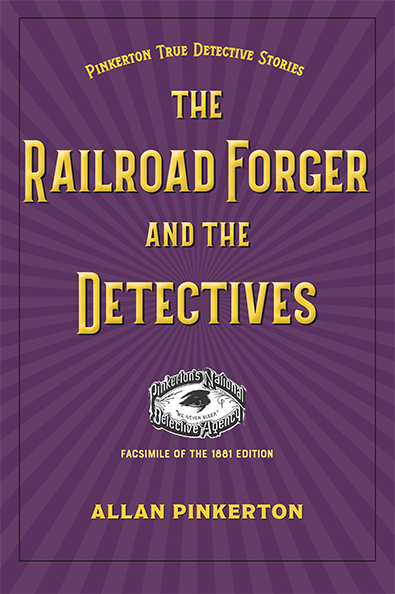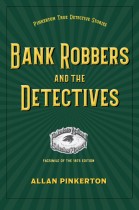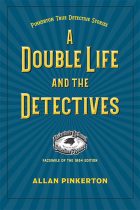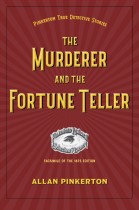The Railroad Forger and the Detectives
Black Squirrel Books, Classic Detective Stories, Criminal InvestigationAllan Pinkerton
From the Borowitz Collection, Kent State University Special Collections and Archives
In The Railroad Forger and the Detectives, real estate agent Thomas H. Cone vanishes suddenly. At the same time, the Pinkerton Detective Agency’s Philadelphia branch, helmed by Mr. Linden, is hired by the Adams Express railroad company to investigate a draft forgery case. Two checks totaling more than $1,200 had been intercepted in the mail and falsely endorsed by none other than Mr. Thomas Cone!
As the investigation heats up, Linden discovers that this crime is just the latest in a string of similar forgeries, which initially do not seem to be connected; the forgers are scattered across the country and seemingly have no relation to one another. Linden retraces Cone’s whereabouts, beginning with his rented office space. The deserted office initially yields few clues until Linden spots Cone’s blotting sheet. From a tangle of ink stains, Linden uncovers the address for a William R. Wales in Redrock, Ohio.
Sensing a pattern, Linden is determined to find out if there is a gang of forgers, if William Wales is somehow involved, or if Cone has acted alone under a variety of aliases. A thrilling, fictionalized account of crime in the railroad business, The Railroad Forger and the Detectives is a tale of greed and an elaborate scheme—one only the Pinkerton Detective Agency can bring down.
Allan Pinkerton (1819–1884) was born in Scotland and immigrated to the United States in 1842. Settling in the Chicago area, his first career was as a cooper. While wandering in the woods looking for wood to make barrel staves, he came across some counterfeiters and helped in their arrest. That led to Pinkerton being appointed as police detective in Cook County, Illinois, and later forming his own company—the Pinkerton National Detective Agency. Pinkerton produced numerous books based on his work and that of his agents. The books no doubt reflect his views but obviously contain fictionalized and sanitized accounts; many historians, as well, believe he used a ghostwriter.





